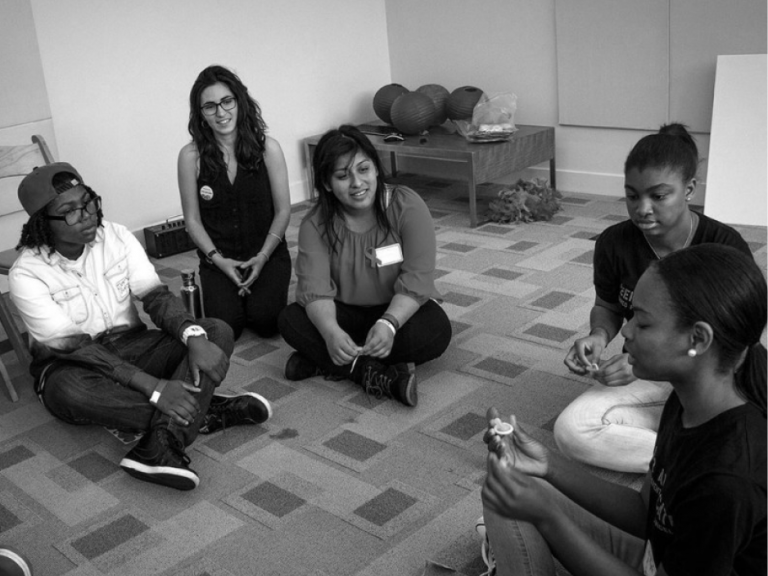Learn more about sexually transmitted diseases/infections to become informed about your sexual health.
- STDs/STIs
- HPV Human Papilloma Virus
- Chlamydia
- HIV (Human Immunodeficiency Virus)
- Gonorrhea
- Syphilis
- Herpes 1 & 2
- Bacteria Vaginosis
- Scabies
- Pubic Lice
- Molluscum Contagiosum
- Intestinal Parasites
- Hepatitis B
- Trichomoniasis
- Cytomegalovirus (CMV)
- Lymphogranuloma Veneereum
- Mononucleosis
- Mycoplasma Genitalium
- Nongonococcal Urethritis
- Chancroid
HPV Human Papilloma Virus
Human Papilloma Virus (HPV) is a Sexually Transmitted Infection (STI) caused by a virus. There are over 40 types of HPV that can infect the genital areas of males and females.
Street Name: HPV Symptoms: There are several strains of HPV. Most strains (90%) go away on their own, with no serious harm to the body. There are some strains that do cause serious issues. HPV strains that cause genital warts show up as a group of bumps shaped similar to cauliflower. These can also be found in the mouth area.Some strains of HPV have also been linked to cervical cancer, as well as some throat and mouth cancers. Treatment/ Relief: There is no cure for HPV, but in some (not all) instances the body can get rid of the virus. Gential warts can be frozen or surgically removed. There is a vaccine available for most of of the common HPV strains that cause both cervical cancer and gential warts. How you get it: HPV can be transmitted through vaginal, oral and anal sex, as well as genital-to-gential contact (sex play). HPV can be transmitted in same-sex and straight couples. Most people that have HPV do not know they are infected and can carry the virus for years after they are infected. A person can have more than one strain. What should you know: There are about 100 different types of HPV floating around, with about 40 of them infecting humans. More than 50% of sexuallly active people will have HPV at some point in their lives. How does this impact pregnancy?In rare cases, a pregnant woman could infect the infant with HPV during delivery.
Chlamydia
Chlamydia is a sexually transmitted infection (STI) that affects both men and women caused by a bacteria. It is currently the most common STI, infecting approximately four million people a year.
Street Name: The Clap, the Silent Infection
How you get it:
Chlamydia is passed through anal, oral and vaginal sex. It is possible to get chlaymida in both your genitials and throat. Even when the male does not ejaculate, Chlamydia can still be transmitted.
Symptoms: 90% of Men WILL show symptoms of infection. The overwhelming majority of women (79%) WILL NOT show any symptoms.
Male symptoms: discharge or dripping from penis; burning while urinating; pain and swelling in the genitals.
Female symptoms: vaginal odor; discharge; burning while urinating; some women may feel lower back and abdominal pain; pain during sexual activities; fever.
(Again most women will NOT show any symptoms)
Treatment/ Relief: For most cases, chlamydia can be cured with antibiotics – usually “doxycycline” and “azithromycin”, which are used to fight bacteria.
What you should know?
If not treated, Chlamydia can cause grave and permanent damage to female and male reproductive organs.
For women:
- Chlamydia usually begins with an inflammation of the cervix. The long-term health effects of chlamydia remain unclear. If chlamydia goes untreated the infection can spread and result in infertility (can’t get pregnant). If the infection were to spread into the uterus and fallopian tubes, it could cause pelvic infection and scarring.
- If left untreated, Chlamydia could also lead to Pelvic Inflammatory Disease (PID). Many women that have chlamydia do not get PID and not all women with PID have a chlamydia infection
- Pelvic Inflammatory Disease, PID is an infection of the uterus (womb), fallopian tubes (tubes that carry eggs from the ovaries to the uterus) and other reproductive organs. Symptoms of PID, include lower abdominal pain, pain with intercourse, pain during menstruation and irregular periods. The scarring of the tubes can possibly cause infertility and put a woman at higher risk for developing an ectopic pregnancy (a pregnancy that implants outside of the uterus).
For men:
In men, chlamydia can cause urethritis (inflammation of the urethra). If this remains untreated, it may also cause sterility (sperm won’t work and fertilize an egg) in men.
Stats:
California Chlamydia rates (per 100,000 population):
- African American – 1,030.3
- Latino – 332.6
- Native American – 216.4
- White – 141.9
- Asian/Pacific Islander – 118
How is pregnancy affected?
If the infection caused scarring in the uterus or fallopian tubes, women might have a hard time conceiving and carrying a pregnancy. Women can transmit chlamydia through the birth canal. This can lead to serious eye and lung infections in the infant.
HIV (Human Immunodeficiency Virus)
Street Name: HIV, the monster,
How do you get it: HIV is spread through four bodily fluids: blood, semen, vaginal fluid and breast milk ( you cannot get HIV from saliva ). Outside of drug use, the most common way people are infected with HIV is anal and vaginal sex.
There is some risk of HIV transmission with oral sex, but it is very minimal, usually because of oral sex with cold sores or cuts in the mouth.
Symptoms: HIV can take years to show any serious symptoms. Some people experience flu like symptoms within days of the virus entering the body. One or two months after the virus has entered the body symptoms can show up, such as fever, sore muscles, night sweats, joint pain, sore throat, or mouth or genital warts. Other signs include recurring yeast infections and a cough that doesn’t go away. Somewhere between 30% to 60% of newly infected people have symptoms of nausea, vomiting and diarrhea.
In the later stages of untreated HIV or AIDS symptoms include night sweats, nail fungus, recurring infections and illness, rapid weight loss and fatigue.
Treatment/ Relief: There is no cure for HIV. There are drug treatments that keep the virus under control. HIV is no longer the killer it use to be. Medications called anitviral is now more accessible and can help manage HIV. People diagnosed with HIV can live long, high quality lives.
Nationally:
1 in 32 black women will be diagnosed with HIV in their lifetime.
1 in 16 black men will be diagnosed with HIV in their lifetime.
In California:
Over 200,000 HIV cases are reported in California. ( graph this information)
White – make up 51%
Black – make up 18%
Hispanic – make up 26%
Other – less than 1 percent
What should you know?
There are 34 million people live with HIV worldwide. The vast majority are in low- and middle-income countries. An estimated 2.5 million people were newly infected with the virus in 2011. Globally, HIV is the most infectious killer.
Special spotlight note: French kissing might not be as safe as you think. In very, very rare cases, HIV has been passed through deep, french kissing. In all cases, open sores in the mouth or bleeding gums exchanged with infected blood was present
How is pregnancy affected?
With the new antiviral drugs and technologies, there is a very minimal risk for HIV transmission from mother to infant during the birthing process. However rare, the virus can be transmitted through the birthing process or breastfeeding.
Gonorrhea

Gonorrhea is a Sexually Transmitted Infection (STI) that affects both men and women. It is spread through vaginal, oral and anal sex with an infected person and is the second most common STI in the United States.
Street name: The Clap, the Drip, GC
How you get Gonorrhea?
In the United States, the highest reported rates of infection of Gonorrhea are among sexually active teenagers, young adults, and African Americans. 820,000 cases were reported by the CDC in 2013, and 70% of those infections were in young people ages 18 – 24. It is caused by bacteria called Neisseria gonorrhoeae.
If you have been exposed to gonorrhea, it takes from 2 to 10 days for possible symptoms to develop or for gonorrhea to show up on a STI test. Once a person has gonorrhea they can infect another person or spread the infection to another part of their own body.
GRAPH HERE http://www.cdph.ca.gov/data/statistics/Documents/STD-Data-LHJ-StateSummary.pdf
Symptoms: Gonorrhea can affect multiple areas of your body, most commonly cervix, penis, anus, throat and eyes.
- CERVIX: pain or burning while urinating; creamy or green discharge; mushroom-like odor from the genital area; lower back pain or abdominal pain.
- ANUS: mucous discharge from the anus or itching in that area.
- THROAT: sore throat.
- PENIS: burning while urinating; clear, creamy, white, yellow or yellowish-green discharge from the penis. In addition, a male’s lymph nodes in the groin may be slightly swollen and tender.
Treatment/ Relief: Most strains of gonorrhea are curable and can be treated with a simple antibiotics regimen, usually, ofloxacin or centriazone.
SPECIAL NOTE: There is a strain of gonorrhea that is resistant to antibiotics. This is a serious epidemic within certain communities. If infected with this strand and no new treatments emerge, you will have to beat it the old fashion way – letting your body cure it. This method is painful, uncomfortable and can leave serious consequence to reproductive organs.
What should you know?
Being infected with Gonorrhea can increase chances of getting HIV. If left untreated, gonorrhea can develop into a more complicated infection called Pelvic Inflammatory Disease (PID). Women can get gonorrhea through anal sex when secretions are carried from the anus to the vagina.
Women who use Birth Control Pills or use an IUD are more susceptible to contracting gonorrhea, unless they use a male or female condom.
PID is an infection of the uterus (womb), fallopian tubes (tubes that carry eggs from the ovaries to the uterus) and other reproductive organs. Symptoms of PID, include lower abdominal pain, pain with intercourse, pain during menstruation and irregular periods. The scarring of the tubes can possibly cause infertility and put a woman at higher risk for developing an ectopic pregnancy (a pregnancy that implants outside of the uterus).
*** Using condoms and other barrier methods of birth control (diaphragm, cervical cap) are an excellent way to reduce the chance of getting gonorrhea.
How is pregnancy affected?
Gonorrhea can infect the infant during delivery. There are treatments available to protect the infant. If left untreated, a gonorrhea infection in an infant can lead to eye infections and blindness.
Syphilis
Syphilis is a Sexually Transmitted Infection (STI) that affects both men and women. It is caused by bacterium. In the United States, there are 55,400 new infections each year.
In 2010, 47.4% of all cases reported to CDC were among African American men and women.
Street Name: The Great Imitator, Bad Blood
How you get it: Syphilis is most contagious in the primary and secondary stages. Contact with a sore known as “chancre” which could be located in men and women genitial, inside mouth and on lips.
Symptoms: There are three stages to a syphilis infection: primary, secondary and latent stage.
Primary stage: A painless sore known as “chancre” will usually appear 10 to 90 days following the infection. The sore lasts 3 to 6 weeks and heals regardless of whether or not a person is treated. However, without treatment the infection progresses to the secondary stage.
Secondary stage: A rash that could be found anyplace on the body but most commonly found on feet or palms of the hands. Large, raised, gray or white lesions may develop in warm, moist areas such as the mouth, underarm or groin region. Sometimes rashes are so faint that they go unnoticed. Other symptoms include fever, swollen lymph glands, sore throat, patchy hair loss, headaches, weight loss, muscle aches, and fatigue. The symptoms will go away with or without treatment.
Without appropriate treatment, the infection will progress to the late stages of disease. There is a possibility that symptoms will disappear, but the bacteria will remain in the body if there is no treatment.
Late stages: About 15% of people who have not been treated for syphilis will develop late stage syphilis. Late stage can appear anywhere from 10–30 years after the initial infection. Symptoms include difficulty coordinating muscle movements, paralysis, numbness, gradual blindness, and dementia. In the late stages of syphilis, the disease damages the internal organs, including the brain, nerves, eyes, heart, blood vessels, liver, bones, and joints and death.
Treatment/ Relief: Syphilis is treatable and can be cured with antibiotics.
What should you know:
Syphilis is most contagious in the primary and secondary stages. Because of the unethical Tuskegee experiments conducted on black families from the 1930’s to 1970’s, we know more about syphilis and it’s progression than many other bacterial infections.
How does this impact pregnancy?
A pregnant woman with syphilis can pass the infection to the infant. Infants born with syphilis can have many health problems, such as low birth weight, premature delivery and stillbirth (an infant born dead).
Herpes 1 & 2
Herpes is Sexually Transmitted Infection (STI) caused by a virus, herpes simplex virus-2 (HSV-2) or the herpes simplex virus-1 (HSV-1). Herpes is a common and highly contagious infection usually spread through sex. It affects both men and women.
Street Name: Herpes, Cold Sores
How you get it: You can get Herpes through vaginal, anal and oral sex. But also through skin to skin contact and sex play. Herpes can also be spread through sores. Even if you do not have a sore, you can still spread the infection. Sharing personal items like toothbrushes and eating utensils can transmit herpes. Again, the virus can be spread even when there are no visible symptoms of an outbreak.
Symptoms: Most people infected show no signs or symptoms of the infection. Others may show such mild symptoms that it goes unnoticed.
The first outbreak may affect your whole body. You may have a fever and feel run down. You may notice a tingling, itching or soreness, or a swelling in your outer genitals. Small, fluid-filled blisters will appear. The blisters are reddish and have a slit, similar to a paper cut, through the center of the swelling. The surrounding skin may also be reddened. If urine touches the sores, it can cause a painful burning. It may also burn when you urinate. The sores often split, ooze, and scar before they heal. The symptoms can last from 10 days to three weeks.
Recurring Cases – Once contracted, the herpes virus stays in the system. Recurring cases are often milder, with blisters in the genital area being the only visible symptom. However the extent and frequency of recurrence varies considerably.
Treatment/ Relief: There is no cure for herpes. There are treatments that can relieve symptoms and frequency of outbreaks. Medication can help you to prevent from spreading the virus to others. The best way to treat a herpes outbreak is to keep your immune system healthy and decrease stress.
Other types of treatment: Staying healthy is your best defense for recurrent outbreaks of herpes. Here are some suggestions of vitamins and minerals that may strengthen your immune system:
| Vitamin C | 2 – 5 gms/daily |
| Vitamin B-6 | 100 gms/daily |
| Zinc | 50 mg/daily |
| Lysine | 500 mg/daily and 1000 mg/three times a day during active lesions |
Avoid foods with high arginine content – Chocolate, peanut butter, cashews, almonds, sunflower and other seeds, peas. oats, corn, coconut. Avoid coffee.
Include foods in your diet that are high in lysine content – Brewer’s yeast, dairy products, eggs, fish, potatoes.
Click here for Self-Help Home Remedies for herpes.
What should you know:
There are over 750,000 new cases of herpes each year. Over 80% of people with herpes do not know they are infected and can pass the infection to other people.
In the U.S., about 1 in 6 people have gential herpes. Women and African-Americans are most likely to be infected. HSV-2 is nearly twice as high among women (21%) as men (11%), and more than three times higher among African-Americans (39%) than whites (12%).
How does this impact pregnancy?
A pregnant women with herpes can transmit the infection to the infant during labor or delivery. The risk for infection to the infant is highest if the woman is infected late in her pregnancy. If you are pregnant and think you may have herpes, seek treatment immediately.
Bacteria Vaginosis

Bacteria Vaginosis is a condition in women when the normal balance of bacteria in the vagina is disrupted and replaced by an overgrowth of certain bacteria.
Street Name: BV
How you get it: The vagina is full of good, happy bacteria that when in balance keep the vagina and body healthy. We don’t know what exactly causes BV, but the result is an imbalance between the good and harmful bacteria.
What we know for sure is that douching is a major contributor to BV and recurrent episodes of BV. DO NOT DOUCHE.
Symptoms: Abnormal vaginal discharge – meaning you have more than usual and it is smelly, white or grey. The vagina may also burn or itch. The majority of women do not report any signs or symptoms from BV.
Treatment/ Relief: BV usually goes away within a few couple days. Sometimes, though, an antibiotic may be required for a prolonged infection.
What should you know:
In the United States pregnant women have higher rates of BV. Younger women are at higher for BV.
How does this impact pregnancy?
Pregnant women with BV more often give birth to premature and/or underweight infants. Also, because the bacteria can travel up into the uterus and fallopian tubes, pregnant women are at higher risk for Pelvic inflammatory disease (PID).
Scabies
Scabies is a condition of very itchy skin caused by little, tiny mites that embed themselves into the skin of both humans and animals.
Street Name: Itch mite, lice, nasties
How you get it: Scabies is spread through sexual contact or by sharing materials, such as towels, bed sheets, clothes or anything that comes into contact with the person with scabies.
Symptoms: Severe itching with small blisters or sores that worsen at night. In some cases the mites may burrow tracks that trace through the skin.
Treatment/ Relief: Scabies will NOT go away on its own. A doctor must prescribe a cream or, in severe cases, a pill to stop the itching and get rid of the bugs. All clothes and upholstery that the infected person came in contact with must be cleaned and washed to prevent are infection.
What should you know:
Scabies adult mites are located in the skin. Anyone can have scabies although younger people, especially children, are at higher risk of getting scabies.
How does this impact pregnancy?
Scabies can cause a lot of discomfort during pregnancy. Studies have shown that medication used to cure scabies can harm the infant.
Pubic Lice
Public lice are tiny insects that attach themselves to the skin and hair in the pubic area.
Street Name: Crabs
How you get it: You can get pubic lice through sexual activity with an infected person and by sharing personal items (towels, bedding, clothes) that have been infected with pubic lice.
Symptoms: Severe itching in the region covered by pubic hair. Itching does not start until 5 to 14 days after infection.
Treatment/ Relief: Public lice will not go away on its own. A doctor must prescribe a medication known as Eliminate or Kwell. This medication is like shampoo that you use to wash your pubic area and any other infected areas. All clothes and upholstery that the infected person came in contact with should be cleaned and washed to prevent from reinfection.
What should you know:
Shaving your pubic hair will NOT get rid of crabs.
How does this impact pregnancy?
Crabs do not seriously affect pregnancy. Some treatments can harm the fetus. In some cases, treatment might need to stop until delivery.
Molluscum Contagiosum
Molluscum Contagiosum is an infection caused by a virus. The virus is easily spread but is not harmful.
Street Name: None
How you get it: Spread through skin to skin contact with infected area – including sex play. Sex toys can also spread the virus.
Symptoms: Small round, waxy, pink or white bumps on the genitalia and upper thighs. There is often a tiny indentation in the middle of the growth
Treatment/ Relief: Treatments are available to aid in healing any wounds and to prevent you from spreading the infection. A surgical or laser procedure can remove the growth off the skin. Treatment is necessary if you want rapid results, otherwise you can just let them go away naturally taking up to six months.
What should you know: Good hygiene is the best way to prevent the spread of molluscum contagiosum. Condoms are also a good way to prevent the spread of infection.
How does this impact pregnancy?
Molluscum contagiosum will not affect your pregnancy in any way.
Intestinal Parasites

Intestinal Parasites is an infection of the intestines caused by a microscopic, one-cell animal called protozoa.
Street Name: none
How you get it:Intestinal parasites are often transmitted by contaminated food and water, and during nonsexual, intimate contact. Certain overseas destinations may have a higher incidence of intestinal parasites. Having HIV and AIDS can lead to intestinal parasites.
Symptoms: Abdominal pain, diarrhea, nausea/ vomiting, gas, rash or itching around rectum, tired feeling, weight loss, and releasing a worm from bowel movements.
Treatment/ Relief: Drug therapies can be prescribed in either one or two dosages. There are both complementary and alternative therapies that can offer rapid results. There are also nutrition supplements available to help maintain the function of the digestive system.
What should you know:
The illness and seriousness of the parasite is determined by the specific intestinal parasite.
How does this impact pregnancy?
Intestinal parasites are serious when a woman is pregnant. It can increase anemia, which will lead to low amounts of weight gain and greater risks for infection.
Hepatitis B

Hepatitis B is a kind of liver infection. There is no cure, but the infection usually goes away on its own. There is a vaccine available.
Street Name: Heppie B, Hep B
How you get it: Hepatitis B is transmitted in the exchange of blood, semen, vaginal fluids and urine through sex without a condom, sharing any form of needles, unprotected oral sex, having unprotected oral sex, sharing toothbrushes and razors.
Symptoms: After three months of infection signs may include abdominal pain, dark urine, fever, joint pain, loss of appetite, vomiting, feeling of weakness, yellowing of skin and eyes.
Treatment/ Relief: You can begin treatment within 24 hours after coming into contact with the virus. Simpler cases or acute hepatitis goes away on its own – treatment is not necessary. There is an injection for more serious cases. Long term treatments include antiviral medications or liver transplants depending on the seriousness of the infection.
Stats:Approximately 45,000 American women, men, and children become infected with Hepatitis B each year. Most of these infections occur among people who are age 20 to 49.
What should you know:
Acute hepatitis B is a short term illness. Chronic hepatitis B is more serious and can lead to long-term health issues, as well as death.
How does this impact pregnancy?
Hepatitis B can be passed from mother to child. If you are pregnant make sure you get tested. There are successful treatment for infants born to women with untreated Hepatitis B.
Trichomoniasis

Trichomoniasis is caused by a parasite. More than 8 million Americans are infected every year.
Street Name: Trich
How you get it: Through sexual contact with an infected partner.
Symptoms: The symptoms vary according to the sex of the infected individual. Women are subject to discomfort with intercourse, itching near inner thigh area, vaginal discharge, vaginal itching, and vaginal odor. Men are subject to burning after urinating or ejaculating, itching or urethra, and slight discharge from urethra.
Treatment/ Relief: The antibiotic “metronidazole” is commonly used to cure the infection. A newer medication, called Tinidazole could also be used as treatment.
Stats: In the U.S, an estimated 3.7 million people have the infection, but only about 30% develop any symptoms of trichomoniasis.
What should you know:
Trichomoniasis occurs the most in women ages 16 to 35. Trichomoniasis is the most common, curable STI.
How does this impact pregnancy?
Pregnant women with untreated Trichomoniasis are at risk for preterm pregnancy and low birth weight.
Cytomegalovirus (CMV)

Cytomegalovirus (CMV) is a virus that affects both men and women and is transmitted through many bodily fluids.
Street Name: CMV
Symptoms: Enlarged lymph nodes in neck area, fever, fatigue, and loss of appetite.
Treatment/ Relief: There’s no cure for CMV, and treatment for the virus generally isn’t necessary or recommended for healthy children and adults.
How you get it: CMV spreads through bodily fluids as a result of casual contact and sexual contact.
What should you know? CMV infections are rarely serious in otherwise healthy kids and adults; they usually cause only mild symptoms, if any.
Stats: CMV is quite common. About 4 out of every 10 Americans get CMV by the time they reach puberty, mainly through contact with other children’s saliva. Adults, however, usually become infected through sexual activity. Like many other viruses, CMV remains in the body for life.
How does this impact pregnancy? Mothers can transmit CMV to the infant. About 1 out of every 100 babies born in the United States has CMV. Most babies born with CMV have no problems from the virus. But about 1-2 out every 10 of them develop serious health problems. Talk to your provider about reducing any risks.
Lymphogranuloma Veneereum

Lymphogranuloma venereum (LGV) is a STI caused by a type of chlamydia trachomatis (serovars L1, L2, or L3) that rarely occurs in the United States.
Street Name: LGV
Symptoms: Blood or pus from the rectum, drainage through the skin from lymph nodes in the groin, painful bowel movements, small painless sore on the male genitals or in the female genital tract, swelling and redness of the skin in the groin area, swelling of the labia, swollen groin lymph nodes on one or both sides. It may also affect lymph nodes around the rectum in people who have anal intercourse.
Treatment/ Relief: LGV is usually treated with antibiotics and the commonly used antibiotics are; tetracycline, doxycycline, erythromycin, and azithromycin.
How you get it: LGC is a long-term infection of the lymphatic system caused by three different types of the bacterium Chlamydia trachomatis. The bacteria is spread through sexual contact.
Stats: LGV is more common in Central and South America. Every year, a few hundred cases of LGV are diagnosed in the United States. However, the actual number of infections is unknown.
What should you know? LGV is more common in men than women. The main risk factor is being HIV-positive.
How does this impact pregnancy? Pregnant women are usually treated with and antibiotic.
Mononucleosis

Mononucleosis is a virus. It is quite common in adolescents and young adults.
Street Name: The kissing disease, Mono
Symptoms: Severe fatigue, Headache, sore throat, which sometimes can be very severe, chills, followed by a fever, muscle aches.
Treatment/ Relief: There is no required treatment necessary. Rest is the best remedy. Gargle with salt water or use throat lozenges to soothe sore throat. Taking Tylenol or Advil to reduce fever and to relieve a sore throat and headaches. Avoid contact sports and heavy lifting to reduce the risk of injuring your spleen.
How you get it: Mononucleosis is often spread by saliva and close contact.
Stats:Around 1.5 million people infected in the U.S. annually.
What should you know: Usually cases of mononucleosis are not very severe. The mono virus can affect young children and adults as well, and mostly pregnant women are also at risk of suffering from mono.
How does this impact pregnancy? There is no cure for mono. Talk to your doctor about eating well and getting plenty of rest.
Mycoplasma Genitalium
Street Name: M Genitalium
Symptoms:
Men: Men may have NO symptoms; stinging or burning when passing urine; discharge from the penis.
Women: May cause NO symptoms in women; or pain in the pelvic area, pain or bleeding during sexual intercourse, abdominal pain, and abnormal vaginal discharge or stinging or burning when passing urine.
Treatment/ Relief: Treatment consist of antibiotics. The most effective is Macrolides which has an 84% chance of proper relief.
How you get it: M genitalium can be transmitted by vaginal and anal sex, and probably also through oral sex.
What should you know: To allow the antibiotics time to work you should not have sex or you should use condoms for one week after finishing treatment.
How does this impact pregnancy? The impacts on pregnancy have yet to be determined.
Nongonococcal Urethritis

Nongonococcal Urethritis is an inflammation of the urethra (the tube that carries urine from the bladder to the outside of the body) that is not caused by gonorrheal infection.
Street Name: NGU
Symptoms: Pain or burning during urination and an urge to urinate more frequently. Another symptom is redness around the opening of the urethra – the tube that carries urine from the bladder to the outside of the body.
Men with nongonococcal urethritis also often have a yellow discharge from the urethra. Women are less likely to have symptoms from sexually transmitted infections such as gonorrhea and chlamydia.
Treatment/ Relief: Infectious urethritis can be treated with a variety of antibiotics. Because certain strains of bacteria have become resistant to specific antibiotics, a doctor may need to prescribe a different antibiotic if symptoms continue after taking the first prescription.
How you get it: Urethritis is transmitted through sexual activity.
What should you know Having sexually transmitted urethritis may increase your risk of HIV infection. If you already have HIV, urethritis may increase the risk that you will pass HIV to a sex partner.
How does this impact pregnancy?
NGU can increase the risk of infertility and ectopic pregnancies.
Chancroid

Chancroid (SHANG-kroid) is a type of bacteria that is transmitted through sexual contact. It causes sores on the genitals.
Street Name: Soft sore, Soft ulcer, soft chancre
Symptoms: An ulcer (large blister) that is painful, soft, has sharply defined borders, has a base that is covered with a grey or yellowish-grey material, and bleeds easily if banged or scraped.
Treatment/ Relief: The infection is treated with antibiotics, including azithromycin, ceftriaxone, ciprofloxacin, and erythromycin. Large lymph node swellings need to be drained, either with a needle or local surgery.
How you get it: Chancroid is a bacterial infection that is spread through sexual contact. It is not that common.
What should you know:
Chancroid can get better on its own. However, some people may have months of painful ulcers and draining.
How does this impact pregnancy:
No adverse effects of chancroid on pregnancy outcome have been reported.

